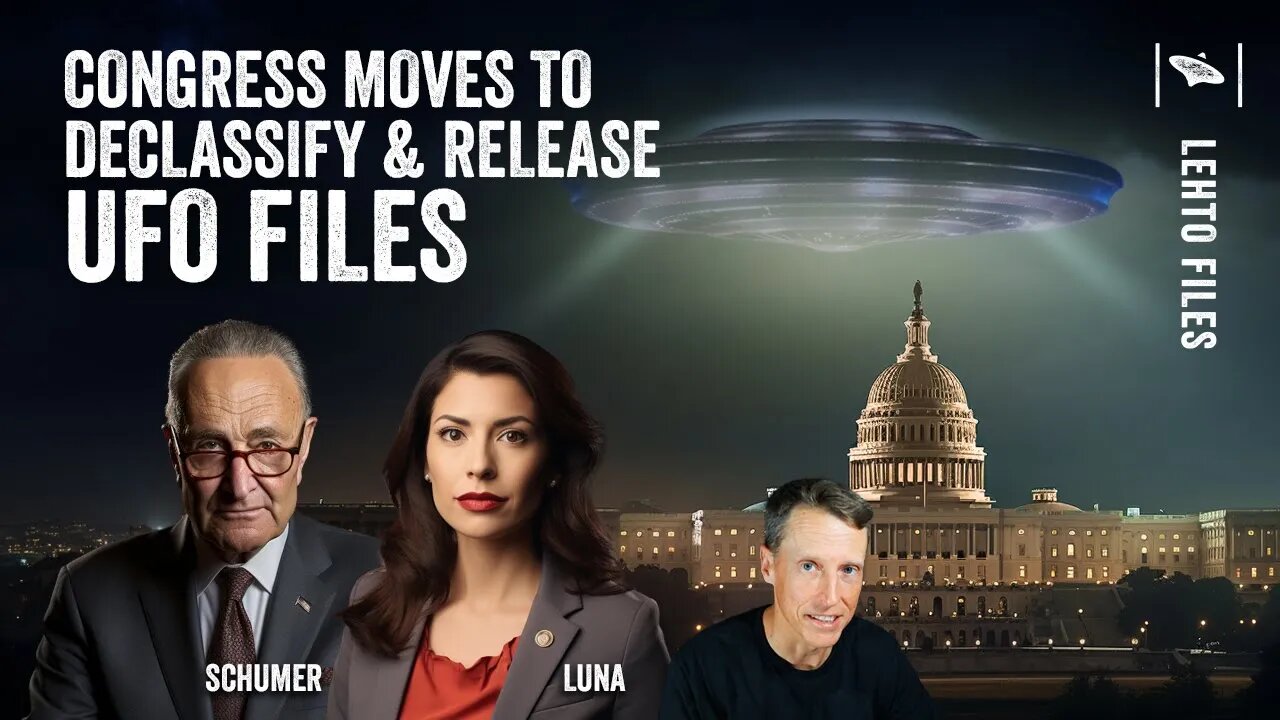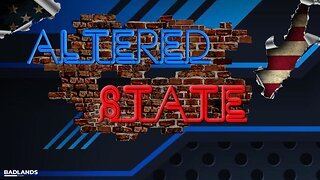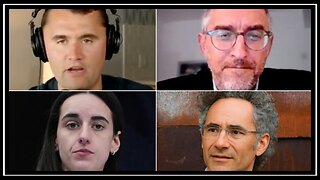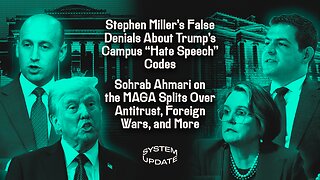Premium Only Content

The UFO Phenomenon: The U.S Senate's Call for Disclosure
Join this channel to get access to the perks such as watching it now:
https://www.youtube.com/channel/UCVNKdkLzWuy1oLuCuCv4NCA/join
In this episode of Lehto Files, host Chris Lehto dives into recent developments regarding unidentified anomalous phenomena (UAP) or UFOs. Lehto discusses the uptick in mainstream media coverage on the topic and examines ongoing government investigations, including a much-anticipated UAP hearing co-led by Congresswoman Luna. He also delves into efforts by Senator Chuck Schumer and Senator Mike Rounds to push for transparency and release UAP-related government documents. Towards the end, Lehto reflects on the proposal's eminent domain provisions over recovered non-human technologies and potential implications.
Thanks for watching, liking, and subscribing! It really helps the channel.
Support the channel at Patreon.com/chrislehto
Join the DeSci movement at UAPsociety.com
From Claude AI (A free-to-use AI that accepts 100,000 tokens right now! That's like a short book!)
Here is a summary of the key points from the bill:
Title and Purpose
- Unidentified Anomalous Phenomena Disclosure Act of 2023
- To provide for expeditious disclosure of unidentified anomalous phenomena records
Key Definitions
- "Unidentified anomalous phenomena" - Objects lacking attribution due to advanced performance capabilities, including UFOs/UAPs
- "Technologies of unknown origin" - Materials/technologies associated with UAPs lacking attribution
Main Provisions
- Establishes a UAP Records Collection at the National Archives
- Requires government offices to review and transmit UAP records for disclosure
- Allows postponement of disclosure only for narrowly defined national security risks
- Establishes an independent Unidentified Anomalous Phenomena Records Review Board to facilitate review and disclosure
- Provides Review Board access to records, authority to direct government offices, and subpoena power
- Allows periodic review of postponed disclosures and mandatory review every 25 years
- Allows President to postpone executive branch disclosures based on section 11106 standards
- Provides for congressional oversight and public reporting
References between UAPs and Nuclear Issues:
- Section 11106(1) allows postponement of disclosure if it reveals intelligence sources/methods "currently utilized" or "reasonably expected to be utilized."
- This could potentially include sensor data or other intelligence related to monitoring UAP activity around nuclear facilities
The bill focuses broadly on requiring disclosure of government UAP records and does not go into detail on specific UAP-nuclear connections. But it does allow for relevant classified intelligence sources and methods related to UAPs to be protected from disclosure.
There are a few potential ways the government could try to hide information about unidentified aerial phenomena (UAPs) even if the allegations are true:
- Claiming national security exemptions - The bill allows the government to postpone disclosure of UAP records if they can show "clear and convincing evidence" that disclosure would harm national security. The government could overclassify records and make excessive claims that disclosure would damage national defense, intelligence operations, etc.
- Redacting key details - Even if records are released, agencies could heavily redact them to remove sensitive or revealing details about UAP capabilities, incidents, etc.
- Withholding sources and methods - The bill specifically allows withholding intelligence sources and methods related to UAPs. This provides latitude to exclude technical collection capabilities that might reveal the extent of government knowledge.
- Routing records through compartments - Records could be tightly controlled in special access programs and compartments, denying access even to those with high clearances. This "stovepiping" makes oversight difficult.
- Delaying tactics - Bureaucracies have many techniques for dragging out requests or disclosure mandates. Delaying and appeals for extensions could push back releases indefinitely.
- Limiting Review Board access - Agencies could resist cooperating fully with the Review Board on locating records, witnesses, etc, stymying their oversight capabilities.
- Classifying contractor research - Private research on UAPs funded by government contracts could potentially be classified, shielding it from disclosure.
- Authorizing only certain officials to view - Sensitive UAP records could be restricted to only those select individuals cleared to know, again evading oversight.
So while the bill creates mechanisms for disclosure, determined elements within the government could still employ long-established bureaucratic tactics to hinder transparency, even if true information about UAPs exists within classified channels. The effectiveness of disclosure will depend on the vigor of ongoing congressional and public oversight.
-
 37:34
37:34
Lehto Files
10 months ago $0.05 earnedEinstein’s Hidden Theories: Cosmic Unity Explained!
4275 -
 LIVE
LIVE
The Quartering
1 hour agoOn To The Big Bosses! Act 2 Of Expedition 33
1,100 watching -
 LIVE
LIVE
SpartakusLIVE
3 hours agoTiger Blood RESTOCKED and 30% off w/ code SPARTAKUS30
540 watching -
 24:58
24:58
Law&Crime
3 hours agoSecond Note Leaves Disturbing Clues in New York City Killings
261 -
 LIVE
LIVE
Badlands Media
19 hours agoAltered State S3 Ep. 39
1,179 watching -
 LIVE
LIVE
Due Dissidence
8 hours agoCharlie Kirk's GAZA LIES, Caitlin Clark Stalker, Palantir Goes Hollywood - w/ Kyle Matovcik | TMWS
578 watching -
 UPCOMING
UPCOMING
I_Came_With_Fire_Podcast
10 hours agoAmerica First, Trump Threatens China, Your Friendly Neighborhood Illegal, EPA Gets a "W"
227 -
 LIVE
LIVE
Geeks + Gamers
39 minutes agoGeeks+Gamers Play- MARIO KART WORLD
78 watching -
 8:28:19
8:28:19
Dr Disrespect
9 hours ago🔴LIVE - DR DISRESPECT - BATTLEFIELD 1 - FULL GAME
130K7 -
 1:39:26
1:39:26
Glenn Greenwald
5 hours agoStephen Miller's False Denials About Trump's Campus "Hate Speech" Codes; Sohrab Ahmari on the MAGA Splits Over Antitrust, Foreign Wars, and More | SYSTEM UPDATE #495
73.1K21